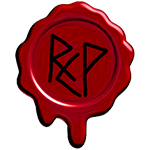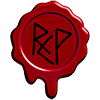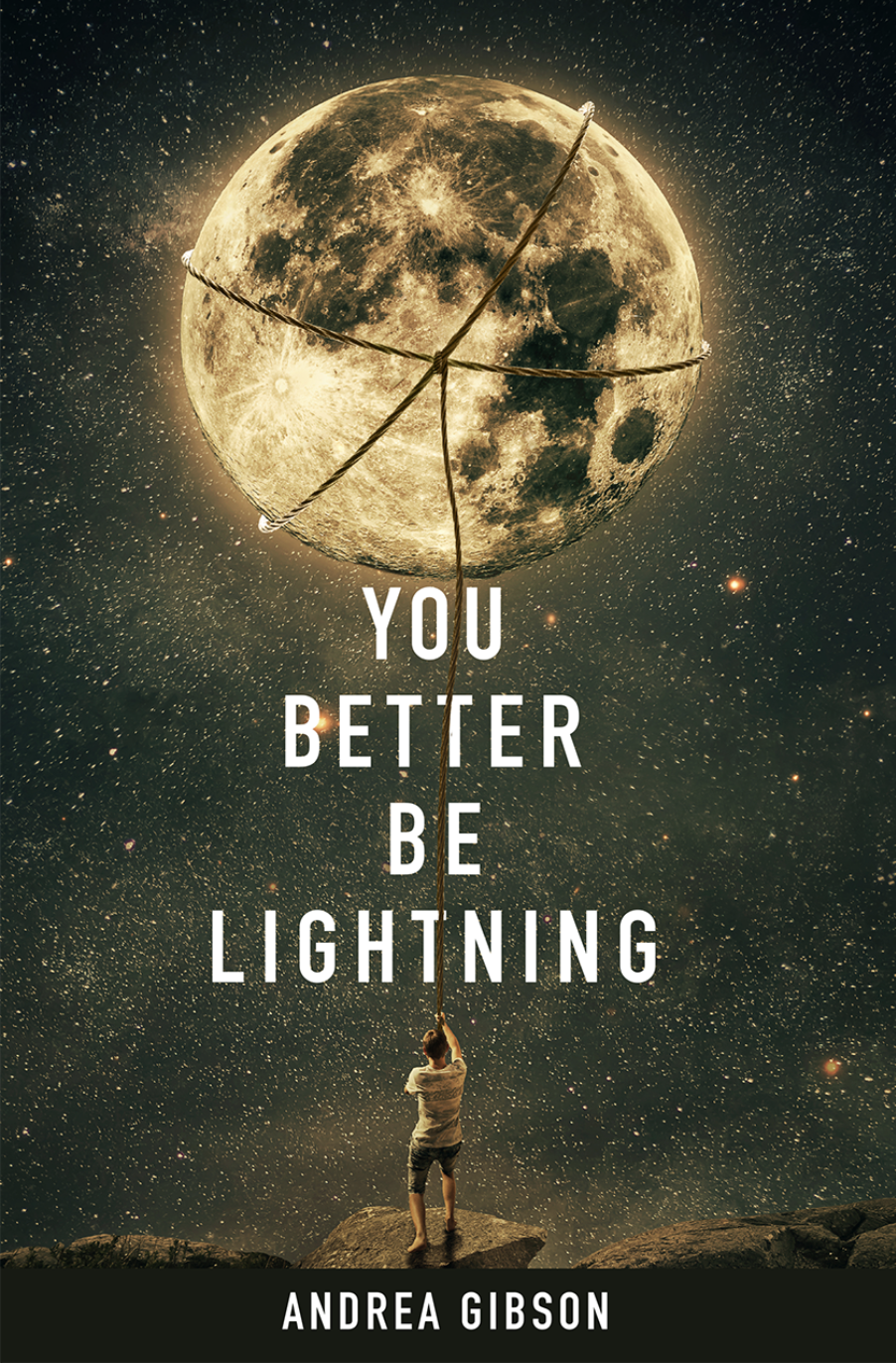I’m more wonder than I am doubt
In Conversation with Andrea Gibson: Part II
Billy Lezra
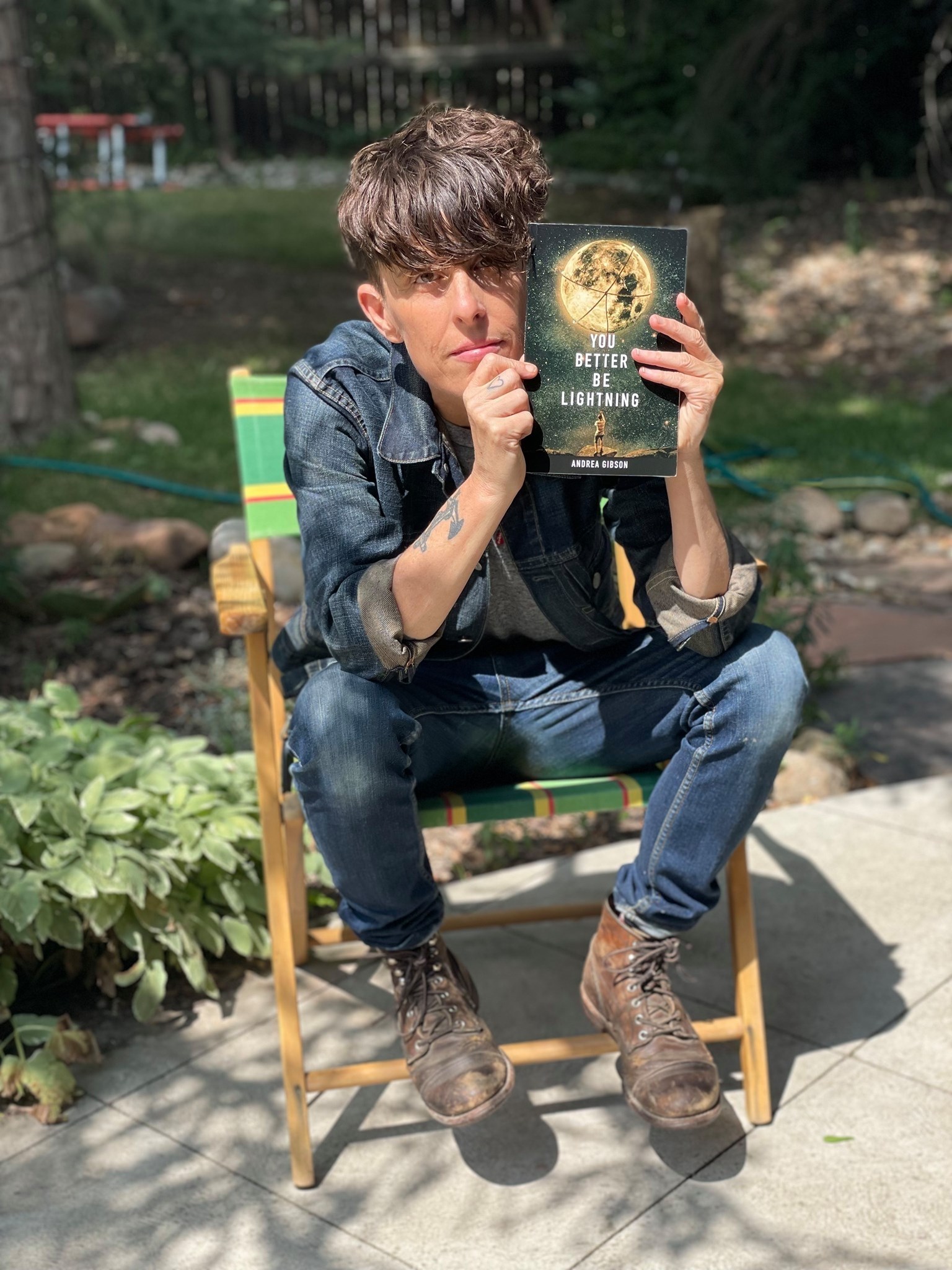
ANDREA GIBSON (they/them/theirs) is a queer author of five full-length collections of poetry, including Lord of the Butterflies (Button Poetry 2018) which sold over 20,000 copies worldwide. Winner of The Independent Publishers Award in 2019, Andrea is also a three-time Goodreads Choice Awards Finalist. In 2017, Penguin Books published Take Me With You, an illustrated collection of Gibson’s most beloved quotes, and in 2019, Chronicle Books published their first non-fiction endeavor, How Poetry Can Change Your Heart. The winner of the first Women’s World Poetry Slam, Gibson has gone on to be featured on BBC, Air America, CSpan, and regularly sells out large capacity venues all over the world. Gibson has also released seven full-length albums of spoken word. Their most recent book, You Better Be Lightning, is now available.
Website | Instagram @andrewgibby | Tumblr andrewgibby | Facebook @AndreaGibsonPoetry | Twitter @andreagibson
What is the last thing you wrote?
The last thing I wrote was an essay about learning to love being wrong, and why being right is boring. It’s something I think about constantly—how much of this world would change for the better if we were collectively more interested in growing and learning than we were in our own rightness. Attachment to rightness instantly shuts down vital conversations. I imagine a world where folks are thrilled about the possibility of having their minds and hearts changed every single day, and that world is so beautiful.
What brings you joy?
I think most folks who follow my work these days know I was diagnosed with ovarian cancer this summer, and have spent the last months doing chemotherapy. I would have previously never imagined I could find so much joy throughout a time like this, but I’ve been flooded with it– simply because I spend so much less time thinking about the past or the future. What is right in front of me at any given second is what I naturally pay attention to most these days, and I’ve found there is so much sweetness in a moment truly lived. Prior to my diagnosis, I was pretty consistently somewhere else: worrying about the future, or aching about the past. I’d spent over a decade trying and failing to break that pattern, and then suddenly there was no other option but to be, just be. And in that being I have come to treasure being alive in a very new way. So much is precious to me that wasn’t before.
What did it mean for you to see an image of a moon on the cover of YOU BETTER BE LIGHTNING?
I love this question as I just yesterday gifted myself a telescope so I could get a better view of my one and only long-distance love: the moon. At the beginning of the design process for the book, I asked Amy Law, the cover designer, to create an image in which the impossible was made possible. I had no idea what Amy would come up with, but when I received the image of a person lassoing the moon I started running throughout my house screaming with joy. I’m pretty certain I wrote back something like —- “This is my favorite cover ever! And by that I mean my favorite cover of any book ever printed IN THE HISTORY OF THE WORLD!!”
For this collection, you said: “I wanted to write something from the best of me. Not “best” as in craft or skill—but from the part of my heart I most trust.” How did you come to find this part of your heart, this trust?
Thanks to years of therapy when I take a minute to touch into my emotional state I can pretty easily determine if I’m operating from a place of clarity, or reactivity. If I’m feeling reactive my lens is almost certainly being fogged up by old wounds, past traumas. With ‘You Better Be Lightning’ I didn’t want to write from that place, so even if I was feeling a little bit edgy I’d step away from my writing desk and wait for the fog to clear. That’s not to suggest that’s the only healing way to write. Many people find a great deal of comfort and release writing through the edge, giving voice to the wound. I respect that and it’s been helpful to me in the past, but it wasn’t what this new collection was about for me. I wanted the softest part of my heart to write these poems. That’s not to say they’re all happy and that’s not to say there aren’t angry poems in the collection. There are. But I’d have to be able to feel, really feel, the love beneath the anger to give them a home in the book.
Song and voice are themes that echo in your work. How important is sound to you, within your creative process?
I’m a spoken word artist through and through. Meaning, I write every single thing I write to live out loud. The sound of my poems is as important to me as the sound of a song might be to a musician. Even lately, as I’ve been writing more essays and stories for my newsletter, I’ll commonly record myself speaking them so I know how they sound aloud. If they don’t sound right, I’ll rework the writing until they learn how to live in the air.
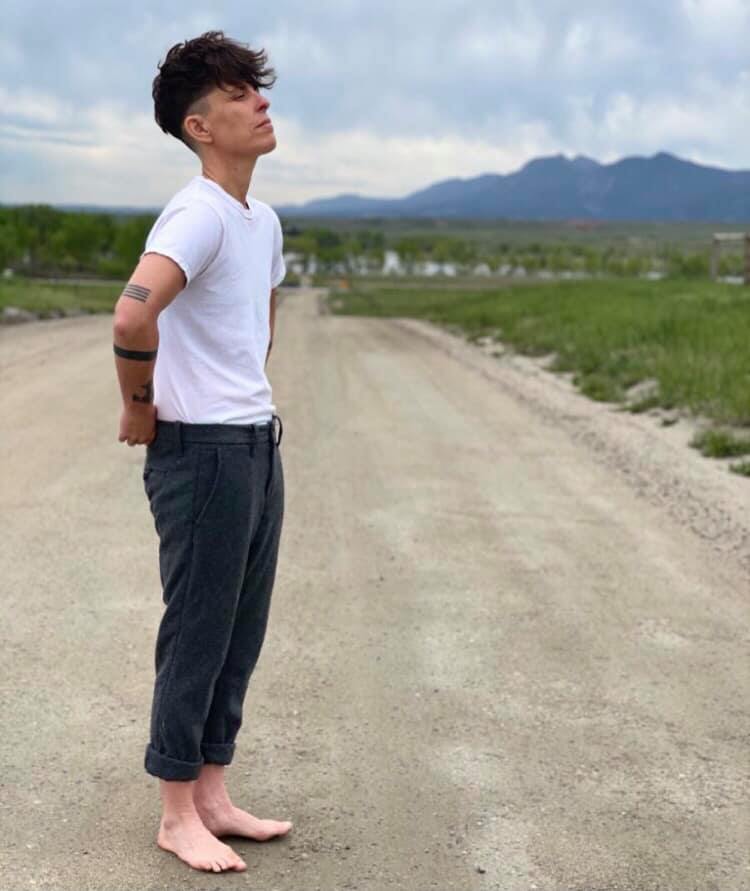


You’ve mentioned that writing involves listening: what do you think makes a good listener?
For me, it starts with solidifying in myself a basic assumption that I have so much more to learn. After that, it’s a very physical experience, an intention of actually relaxing my body, specifically the area around my heart, until I feel a less guarded version of myself is present. In that state, I’m more curiosity than I am knowing. I’m more wonder than I am doubt. I’m more open than I am critical.
In our last conversation, you said, “to not run away from is where I find hope.” What does it mean for you to stay, or, to not run away?
There is a lyric in a Brandi Carlile song that goes, “You can dance in a hurricane, but only if you’re standing in the eye.” So much possibility exists in the moments we choose to be with the truth. To stand in the very center of what is, and not run away from what begs us to stay, to see, to offer a hand. I want to interact with both the outer world, and my inner world in that way. I want to be with what’s there, and search for the parts of myself that might have the capacity to add some gentleness to it all.
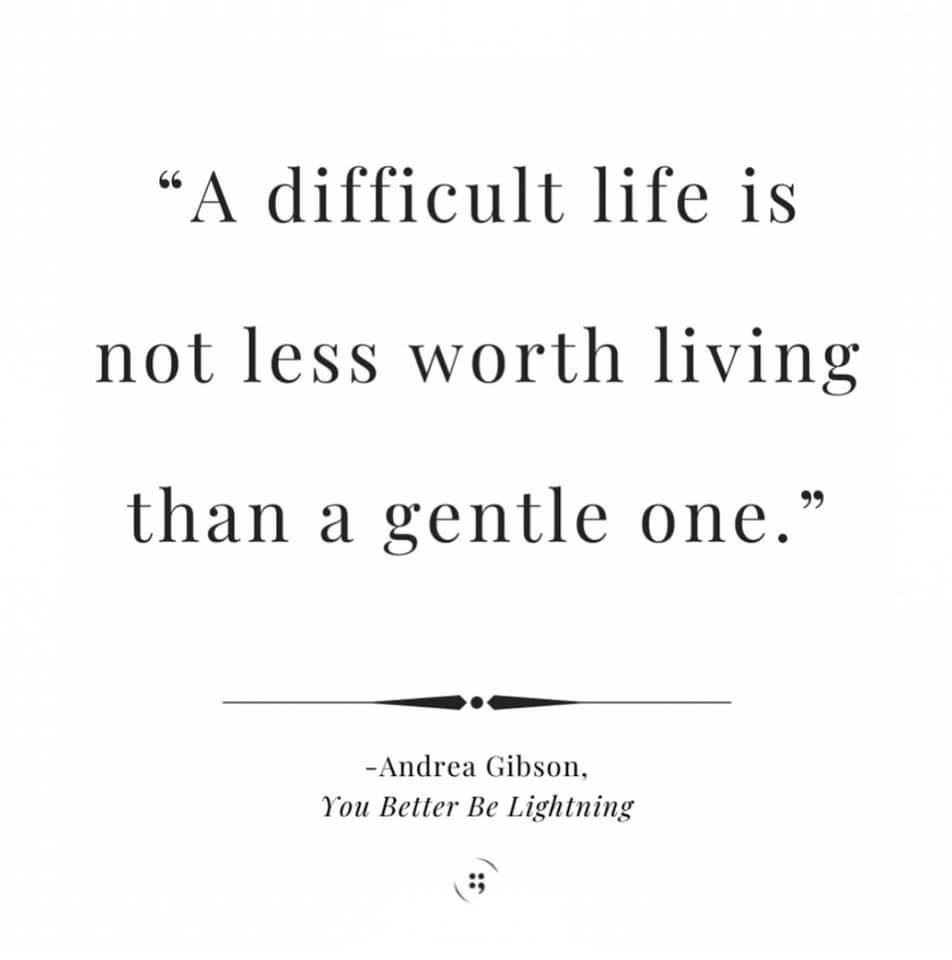


In an interview, you said: “I’ll say one of the other primary places I speak from is rooted in the belief that even when the truth isn’t hopeful the telling of it is.” Would you say more on how the act of telling the truth is in itself hopeful?
I use the word “god” a lot in my work, and I never quite know how to explain what I mean when I say “god” but if I had to come up with a one-word definition I’d say “truth”. On a personal and political level–it’s what I put my faith in: truth. And on the flip-side of that—what I’m most afraid of are lies. So even when the truth fills us with grief, it’s a healing grief. It’s a grief with momentum towards positive change. It’s something to count on, to believe in, to build our lives in service of.
When was the last time you were completely covered in goosebumps?
Oh, I love this question! It’s so fun to think about. I shared this story on socials some weeks ago, but I’ll share it here again. As I’m several months into chemo I’ve lost all of my body hair— except for my eyebrows. Every morning I wake up, look in the mirror, and marvel at how fiercely my brows are still holding on. One day, as I was thinking about the miracle of it, I received a message from my parents saying my father had woken up with one of his eyebrows missing. It had disappeared in the night for no known reason. They sent me a photo, and I was covered from head to toe in goosebumps. A month later my dad’s eyebrow is still missing. And mine are both still here. I believe he lost his so I could keep mine. No one can convince me otherwise.
What are you looking forward to?
I don’t have the same relationship to “looking forward” as I used to, and that’s not a bad thing. I get excited about waking up tomorrow and feeling the feeling of having a wide-open heart. In this very second, I’m excited to tell my three dogs it’s time for dinner and watch them have an absolutely impossible time controlling their bliss-howl. I look forward to hugging my mom sometime very soon. I look forward to writing more of this current journey down in a way that might add some lightness to the world’s heavy heart. Additionally, I’ve almost completed an album of songs for which I wrote all the lyrics and collaborated with different musicians to bring them to life. I’m excited to have written something people can sing along to. I’m excited for it to snow. I’m excited to make a snow angel. Or three or four or five. And I’m excited to look at the moon through my telescope tonight.
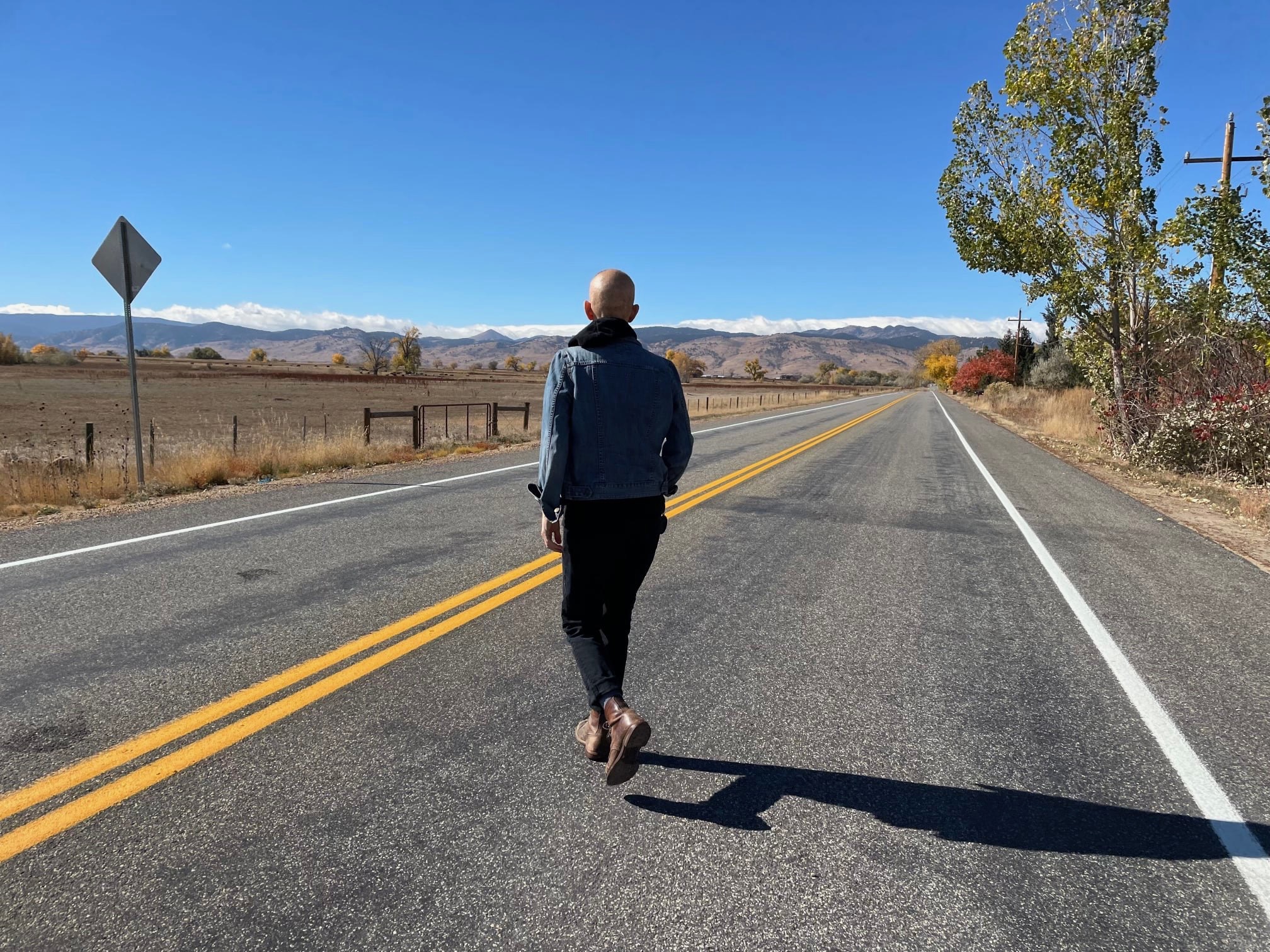


I’m more wonder than I am doubt
In Conversation with Andrea Gibson: Part II
Billy Lezra


ANDREA GIBSON (they/them/theirs) is a queer author of five full-length collections of poetry, including Lord of the Butterflies (Button Poetry 2018) which sold over 20,000 copies worldwide. Winner of The Independent Publishers Award in 2019, Andrea is also a three-time Goodreads Choice Awards Finalist. In 2017, Penguin Books published Take Me With You, an illustrated collection of Gibson’s most beloved quotes, and in 2019, Chronicle Books published their first non-fiction endeavor, How Poetry Can Change Your Heart. The winner of the first Women’s World Poetry Slam, Gibson has gone on to be featured on BBC, Air America, CSpan, and regularly sells out large capacity venues all over the world. Gibson has also released seven full-length albums of spoken word. Their most recent book, You Better Be Lightning, is now available.
Website | Instagram @andrewgibby | Tumblr andrewgibby | Facebook @AndreaGibsonPoetry | Twitter @andreagibson
What is the last thing you wrote?
The last thing I wrote was an essay about learning to love being wrong, and why being right is boring. It’s something I think about constantly—how much of this world would change for the better if we were collectively more interested in growing and learning than we were in our own rightness. Attachment to rightness instantly shuts down vital conversations. I imagine a world where folks are thrilled about the possibility of having their minds and hearts changed every single day, and that world is so beautiful.
What brings you joy?
I think most folks who follow my work these days know I was diagnosed with ovarian cancer this summer, and have spent the last months doing chemotherapy. I would have previously never imagined I could find so much joy throughout a time like this, but I’ve been flooded with it– simply because I spend so much less time thinking about the past or the future. What is right in front of me at any given second is what I naturally pay attention to most these days, and I’ve found there is so much sweetness in a moment truly lived. Prior to my diagnosis, I was pretty consistently somewhere else: worrying about the future, or aching about the past. I’d spent over a decade trying and failing to break that pattern, and then suddenly there was no other option but to be, just be. And in that being I have come to treasure being alive in a very new way. So much is precious to me that wasn’t before.
What did it mean for you to see an image of a moon on the cover of YOU BETTER BE LIGHTNING?
I love this question as I just yesterday gifted myself a telescope so I could get a better view of my one and only long-distance love: the moon. At the beginning of the design process for the book, I asked Amy Law, the cover designer, to create an image in which the impossible was made possible. I had no idea what Amy would come up with, but when I received the image of a person lassoing the moon I started running throughout my house screaming with joy. I’m pretty certain I wrote back something like —- “This is my favorite cover ever! And by that I mean my favorite cover of any book ever printed IN THE HISTORY OF THE WORLD!!”
For this collection, you said: “I wanted to write something from the best of me. Not “best” as in craft or skill—but from the part of my heart I most trust.” How did you come to find this part of your heart, this trust?
Thanks to years of therapy when I take a minute to touch into my emotional state I can pretty easily determine if I’m operating from a place of clarity, or reactivity. If I’m feeling reactive my lens is almost certainly being fogged up by old wounds, past traumas. With ‘You Better Be Lightning’ I didn’t want to write from that place, so even if I was feeling a little bit edgy I’d step away from my writing desk and wait for the fog to clear. That’s not to suggest that’s the only healing way to write. Many people find a great deal of comfort and release writing through the edge, giving voice to the wound. I respect that and it’s been helpful to me in the past, but it wasn’t what this new collection was about for me. I wanted the softest part of my heart to write these poems. That’s not to say they’re all happy and that’s not to say there aren’t angry poems in the collection. There are. But I’d have to be able to feel, really feel, the love beneath the anger to give them a home in the book.
Song and voice are themes that echo in your work. How important is sound to you, within your creative process?
I’m a spoken word artist through and through. Meaning, I write every single thing I write to live out loud. The sound of my poems is as important to me as the sound of a song might be to a musician. Even lately, as I’ve been writing more essays and stories for my newsletter, I’ll commonly record myself speaking them so I know how they sound aloud. If they don’t sound right, I’ll rework the writing until they learn how to live in the air.



You’ve mentioned that writing involves listening: what do you think makes a good listener?
For me, it starts with solidifying in myself a basic assumption that I have so much more to learn. After that, it’s a very physical experience, an intention of actually relaxing my body, specifically the area around my heart, until I feel a less guarded version of myself is present. In that state, I’m more curiosity than I am knowing. I’m more wonder than I am doubt. I’m more open than I am critical.
In our last conversation, you said, “to not run away from is where I find hope.” What does it mean for you to stay, or, to not run away?
There is a lyric in a Brandi Carlile song that goes, “You can dance in a hurricane, but only if you’re standing in the eye.” So much possibility exists in the moments we choose to be with the truth. To stand in the very center of what is, and not run away from what begs us to stay, to see, to offer a hand. I want to interact with both the outer world, and my inner world in that way. I want to be with what’s there, and search for the parts of myself that might have the capacity to add some gentleness to it all.



In an interview, you said: “I’ll say one of the other primary places I speak from is rooted in the belief that even when the truth isn’t hopeful the telling of it is.” Would you say more on how the act of telling the truth is in itself hopeful?
I use the word “god” a lot in my work, and I never quite know how to explain what I mean when I say “god” but if I had to come up with a one-word definition I’d say “truth”. On a personal and political level–it’s what I put my faith in: truth. And on the flip-side of that—what I’m most afraid of are lies. So even when the truth fills us with grief, it’s a healing grief. It’s a grief with momentum towards positive change. It’s something to count on, to believe in, to build our lives in service of.
When was the last time you were completely covered in goosebumps?
Oh, I love this question! It’s so fun to think about. I shared this story on socials some weeks ago, but I’ll share it here again. As I’m several months into chemo I’ve lost all of my body hair— except for my eyebrows. Every morning I wake up, look in the mirror, and marvel at how fiercely my brows are still holding on. One day, as I was thinking about the miracle of it, I received a message from my parents saying my father had woken up with one of his eyebrows missing. It had disappeared in the night for no known reason. They sent me a photo, and I was covered from head to toe in goosebumps. A month later my dad’s eyebrow is still missing. And mine are both still here. I believe he lost his so I could keep mine. No one can convince me otherwise.
What are you looking forward to?
I don’t have the same relationship to “looking forward” as I used to, and that’s not a bad thing. I get excited about waking up tomorrow and feeling the feeling of having a wide-open heart. In this very second, I’m excited to tell my three dogs it’s time for dinner and watch them have an absolutely impossible time controlling their bliss-howl. I look forward to hugging my mom sometime very soon. I look forward to writing more of this current journey down in a way that might add some lightness to the world’s heavy heart. Additionally, I’ve almost completed an album of songs for which I wrote all the lyrics and collaborated with different musicians to bring them to life. I’m excited to have written something people can sing along to. I’m excited for it to snow. I’m excited to make a snow angel. Or three or four or five. And I’m excited to look at the moon through my telescope tonight.



